Why They Give Urban Planning alumna Kayne Doumani on the importance of delivering on your mission
UCLA Luskin alumna and longtime supporter Kayne Doumani shared her experiences as an urban planning graduate student followed by a professional life with unexpected twists and turns. Doumani, who earned her master of arts in urban planning in 1995, has held numerous roles in affordable housing, beginning as a policy analyst for the city of Los Angeles and, more recently, director of asset management for Chinatown Community Development Center in San Francisco. She now possesses an array of skills that has made her an expert on housing in this critical moment and led her to to her current role as an asset management consultant to nonprofit housing organizations. “I didn’t know I was training to be an asset manager,” she said, “but every bit of that experience has contributed to my success.”
Tell me about a transformative experience in your life that led you to your passion?
There wasn’t one. I wrote in my application to what was then GSAUP [Graduate School of Architecture and Urban Planning] that I didn’t know why I cared. There’s no history of public service in my family. We didn’t discuss lofty topics like justice. But that’s been my lens for as long as I can remember. I see things in terms of economic justice and leveling the playing field. I got interested in urban planning when I saw it being used as a tool for making sure that development didn’t only benefit the developer.
What were your early professional experiences like?
The school helped me get a summer internship at the Los Angeles Housing Department in the Policy and Planning Division, which became a part-time job during school and a full-time job after graduation. I worked under the late Gary Squier, a UCLA planning school alumnus and a true powerhouse. It was an amazing experience. I worked closely with Gary to write policy, interfacing with the city’s lobbyists and community advocates. The breadth of issues we dealt with was a great extension of my education.
How did the Luskin School help you get closer to your goal?
For me, Luskin was the complete package. I considered the work of the professors vitally important. Los Angeles was a rich laboratory for professors and students; and those students contributed nearly as much to my education as the professors. We were a diverse and accomplished group coming into the school.
What classes at Luskin now seem most meaningful to you?
It’s been almost 30 years! Can you send me my transcript? The professor I took the most classes from was Don Shoup and he was on my thesis committee. He taught me a way of looking at and analyzing things (even parking!) that is imbedded in my thinking. Neal Richman provided the practical, technical knowledge that launched me into the affordable housing field, where I’ve been ever since. “The Built Environment” with Professor Loukaitou-Sideris informed me as a citizen as well as a professional.
Was there a moment or a person that was critical to your Luskin School experience?
I’m a lifetime member of the Shoupistas.
What is your perspective on the importance of field work for students? Do you see that as an essential component of education in the field of public affairs?
I came to school having worked for two years for a city planning department on their general plan. It gave me a good structure on which to hang what I was learning. Field work can also provide that structure.
What is something people might not understand about the importance of your work, impact of funding and the Luskin School?
I attended UCLA at a particularly tumultuous time. In the face of budget cuts, Chancellor Charles Young was defunding all the schools that educated people for professions in public service. At the same time, the business school was moving into a gorgeous new building. A year after I left, Ward Connerly led the UC Regents to end affirmative action. But Luskin and its stakeholders are not without remedies. If those of us who care about this school want to see it thrive as a diverse and equitable institution, we need to pay for that.
How has philanthropy impacted you in your own life?
Philanthropy can fund those things that the government can’t or won’t, but which are critical to delivering on your mission.
How have you seen the impact of your philanthropy play out?
I try not to. I’m helping a couple of young students I know with their college expenses and the only stipulation I made was, “No gratitude.” You have to trust the people you hand your money to. Then don’t bug them.
What values do you hold closest in your life and work?
Sometimes you need to sublimate your values to those of the people affected by your work. Listen as long and hard as is necessary to understand. The people you need to hear aren’t necessarily speaking your language. Be fierce, not popular.
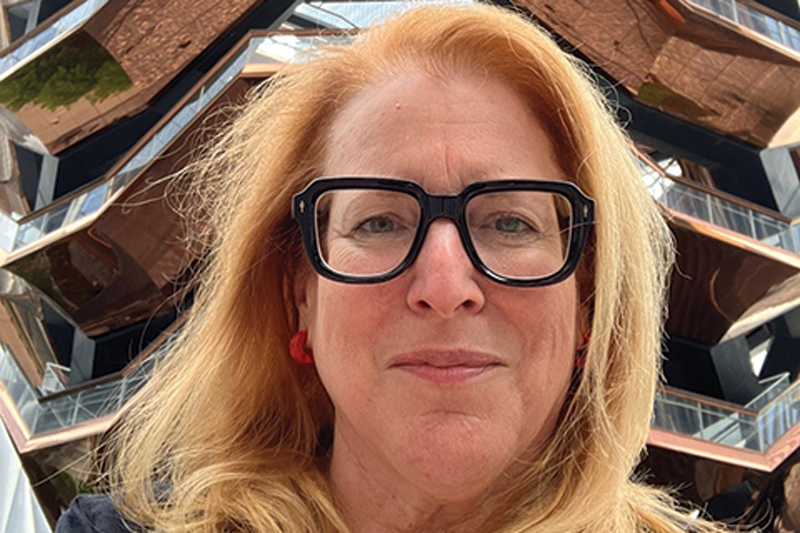
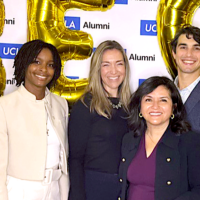
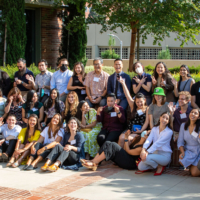
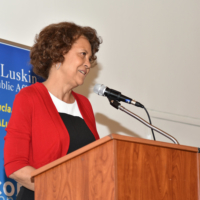
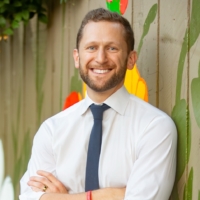
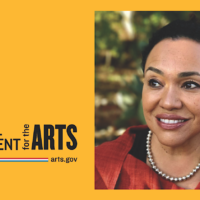
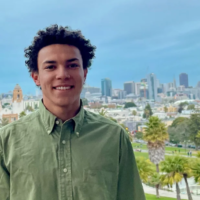



Leave a Reply
Want to join the discussion?Feel free to contribute!